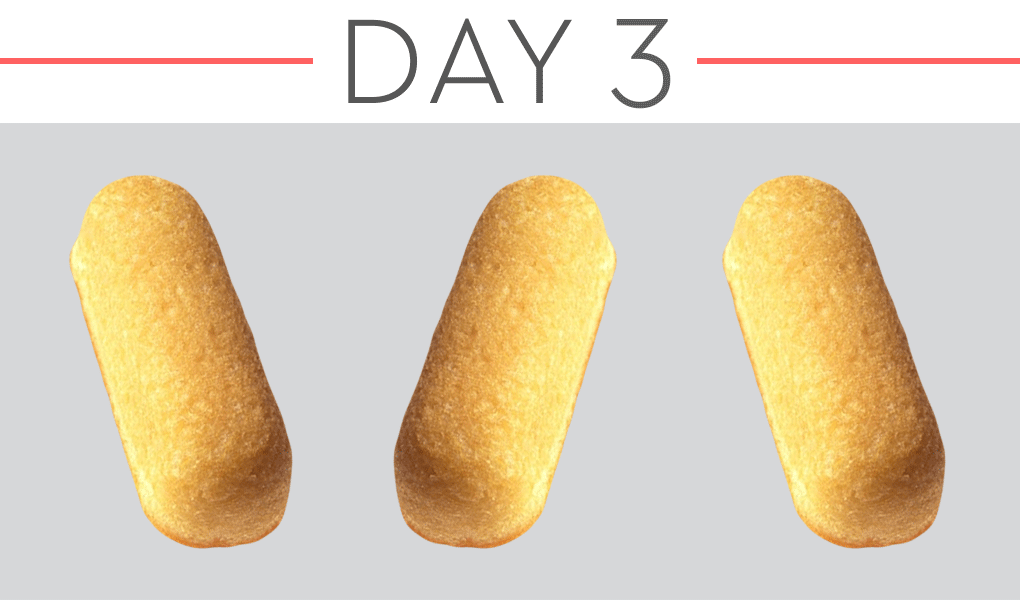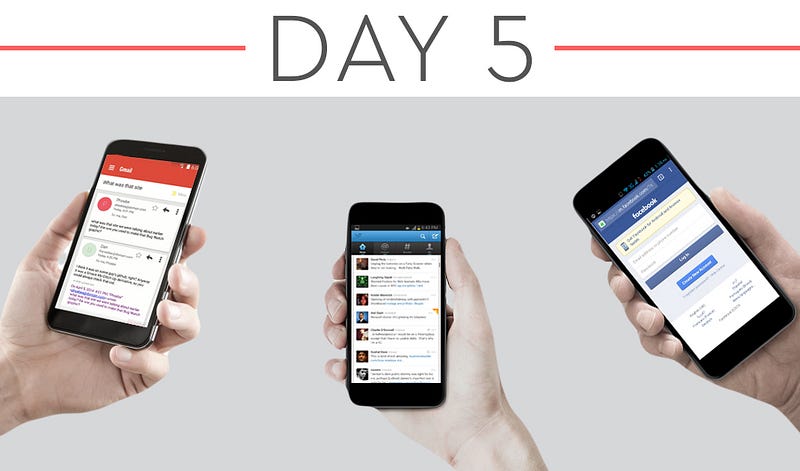I Was As Average As Humanly Possible For A Week
I Was As Average As Humanly Possible For A Week
My week as a mediocre American.
In 1927, an enterprising magazine writer named William Dutton got an idea: Let’s find the most average man in America and see what he’s like. He scoured the country to find America’s most average town — Fort Madison, Iowa — and then surveyed the people there until he met Roy L. Gray.
The 43-year-old owner of a clothing store was the married father of two, and Dutton pronounced him officially the most average man in America. He was whisked off to Chicago for a coronation, and then returned home to Iowa to live out the rest of his totally average life.
I decided to update Dutton’s experiment, but instead of looking for the average American, I would become him. With a demographic profile knit together from dozens of surveys, I transformed my life to resemble, as closely as possible, a composite of every other person in the country.

The average American consumes 2,481 calories each day — nearly 500 more than recommended for a person of my height and age (5’9″ and 40, in case you’re taking notes). We try to eat pretty healthy in our house, and although I don’t count calories, most of my meals involve fresh fruits and vegetables.
A little back-of-the-envelope calculation showed there were two ways to get me where I needed to be, calorically. I could either have double portions for two of my daily meals or eat a processed snack in the afternoons.

The CDC recommends four hours of physical activity a week. I try to take two hourlong exercise classes and then spend several hours doing reasonably strenuous tasks around the property — mowing the lawn, clipping brambles, chopping wood, wrestling with my kids. The average American gets less than two hours a week of physical activity, so I hung up my gym shorts.

The average American watches a staggering 4.3 hours of TV every single day. This, to me, was impossible. After my kids go to bed, my wife and I will sometimes sit down and watch an episode of something on Netflix or Hulu, or a documentary. But four hours — nearly a quarter of my waking day? Where was I going to find the time?
By cutting my reading time, it turned out. I try to read three or four books a week for at least two hours a day, and usually more. It’s how I get ideas for articles, expand my worldview and get some quiet time. I’ve been a voracious reader since I was a little kid and never plan to stop. But the average American reads a book a month, and just 19 minutes a day. So that means my library stack is going to have to take a break for a bit.
With these basic rules, and a few dozen others, I embarked on seven days of being as regular a Joe as I could muster.

I start out the morning with twice as much breakfast as I’d normally eat, figuring that a fuller belly now will be better than a processed snack later. This turns out to be a mistake. I feel bloated and hapless all day, and having CNN on in the background doesn’t help much.
The average American spends 48 minutes a day driving. Since I work from home, that doesn’t happen for me. So I get in my car and drive around the perimeter of the small Pacific Northwest island where I live, which takes about 35 minutes. A quick trip to the hardware store evened it out to 48.

After two days of uncomfortably full stomachs and (sorry to overshare) potent bowel movements, I decide to switch my extra calories over to snack foods in the mid-afternoon. Hostess Twinkies are 135 calories each, so three will just about close the gap. I haven’t eaten one in decades, and am immediately surprised at how overwhelmingly sweet and unctuous they are. It’s not like anything else in my diet, and my eyes immediately dilate from sugar overload.
I’m already sleeping a lot worse at night due to my increased TV intake and lack of exercise. This is actually in keeping with trends, though — the average American only sleeps for 6.8 hours, a full hour less than they did 70 years ago. Anything under 7 hours can cause cognitive impairment, which I’m definitely feeling.

The TV thing is really getting to me. The news is so infuriatingly repetitive — anchors trot out the same four or five stories multiple times in an hour, with no new information. And because of how my brain works, I can’t tune it out. Being tethered to one room in the house with the idiot box on is distracting me from drawing, or playing with the dogs, or the dozens of other things I’d rather be doing.
It’s weird, because I’m not one to shy away from media. The average American checks their phone 46 times a day, but I do it three to four times that number. My kids make fun of me because I’ll be reading Twitter or answering an email when I’m on my way out to the compost. But living the average life means I’ll have to decrease my phone checks. Forty-six times a day averages out to three times an hour, so I keep a little log of how many times I unlock my phone and try to control myself. It’s not easy!

I feel like garbage, full stop. I have had a splitting headache for the last two days. It’s Sunday, so I’m not working, which isn’t normal for me. The average American works only 34.4 hours a week, which is significantly more than most other developed economies but seriously less than I normally do. A typical workweek for me is 45–50 hours, scattered across seven days.
That’s because, unlike most Americans, I get paid based on what I produce. The more I write, the more I earn. I’m lucky enough to normally have the opportunity to work more or less in any given week, depending on my situation. Being locked into a fixed number of hours was an absolute nightmare. Every day I panicked that I wouldn’t be able to file the stories I was working on before my “workday” ended. With fewer hours, it would have been depressingly easy to fall behind — but with a chronically ill child and an average American load of debt, falling behind isn’t an option.
Instead of working my normal amount, I simply work harder, cramming more words into every hour to hit my deadlines. I hope nobody notices, but I certainly don’t feel as proud of this week’s work as I usually do.

I’ve never been happier to wake up on a Monday morning. Living according to the average might work for many, but it sure as hell doesn’t work for me.
The lifestyle of the everyday American seems based on not moving, eating too much and consuming media at a breakneck pace. It’s no wonder we’re stressed out and sick all the time. I don’t consider myself a health nut by any means, but consuming so many calories made me realize how easy the slide into obesity could be. Being bombarded with TV made it clear how easy it is to just take a story at its surface level and never delve deeper into the facts.
Everything in my life suffered from living the average way. I had less time and energy for my kids, spent more on gasoline and (bad) food and was generally in a nasty mood all week. My wife even noticed that my body odor and breath got worse!
Probably the most interesting part of the week for me was the realization that your average American isn’t making these choices consciously. Nobody wakes up in the morning and says, “I’m going to exceed my recommended caloric intake and watch TV for four hours.” They just do it, because deviating from the norm is hard.
But the positive part is that we don’t have to sleep in the bed we’ve made. Just as I consciously had to force myself to act more average, anybody else can take steps in the other direction. Eat less food, consume less media, do less driving. Maybe I’ll even try to not check my phone so often, just to do my part to make my world a little less average.
